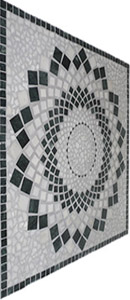|

|
...Unchanged environment over time!

Santa Caterina
(is loddus)
is a locality revealing ancient and historically interesting past.
The lagoon, the isthmus and the salt marshes would be formed with the
issue of sand cords
emerged during the last Versilian transgression. Many centuries ago, in
fact, the entire
surrounding area was covered by the sea. The Isthmus of Santa Caterina
was built by the
Carthaginians during the military occupation in Sardinia
that lasted from the sixth to the third
century BC, afterwards the Romans completed the work during the late
second century BC
with the construction of a bridge. The Roman bridge is still
visible on the right side of the
main road SS126 before entering S. Antioco.
Near the Isthmus, the legend of the "Friar and the Nun" was born. The two
unusual lovers,
who, while attempting a romantic getaway on the island, were turned into
two mid-air statues
as a demonstration of divine disapproval. The figures are actually
petrified "prenuragic menhir"
of the third millennium BC believed to be linked to fertility rites: one
features a feminine, while
the other is without doubt the male element.
The
two "menhir", Su Para e Sa Mongia, popularly
known as "the monk"
and "the nun", are to be found in the locality of Santa Caterina
(is perdas
longas) in the middle of a large field between the salt marshes and the lagoon of
S.
Antioco.
In more recent times, however, Santa Caterina has added to its vocation
for the sea also the
restaurant business, the tourism and the
handicraft in a pristine
environment remained largely
unchanged over time. |
|